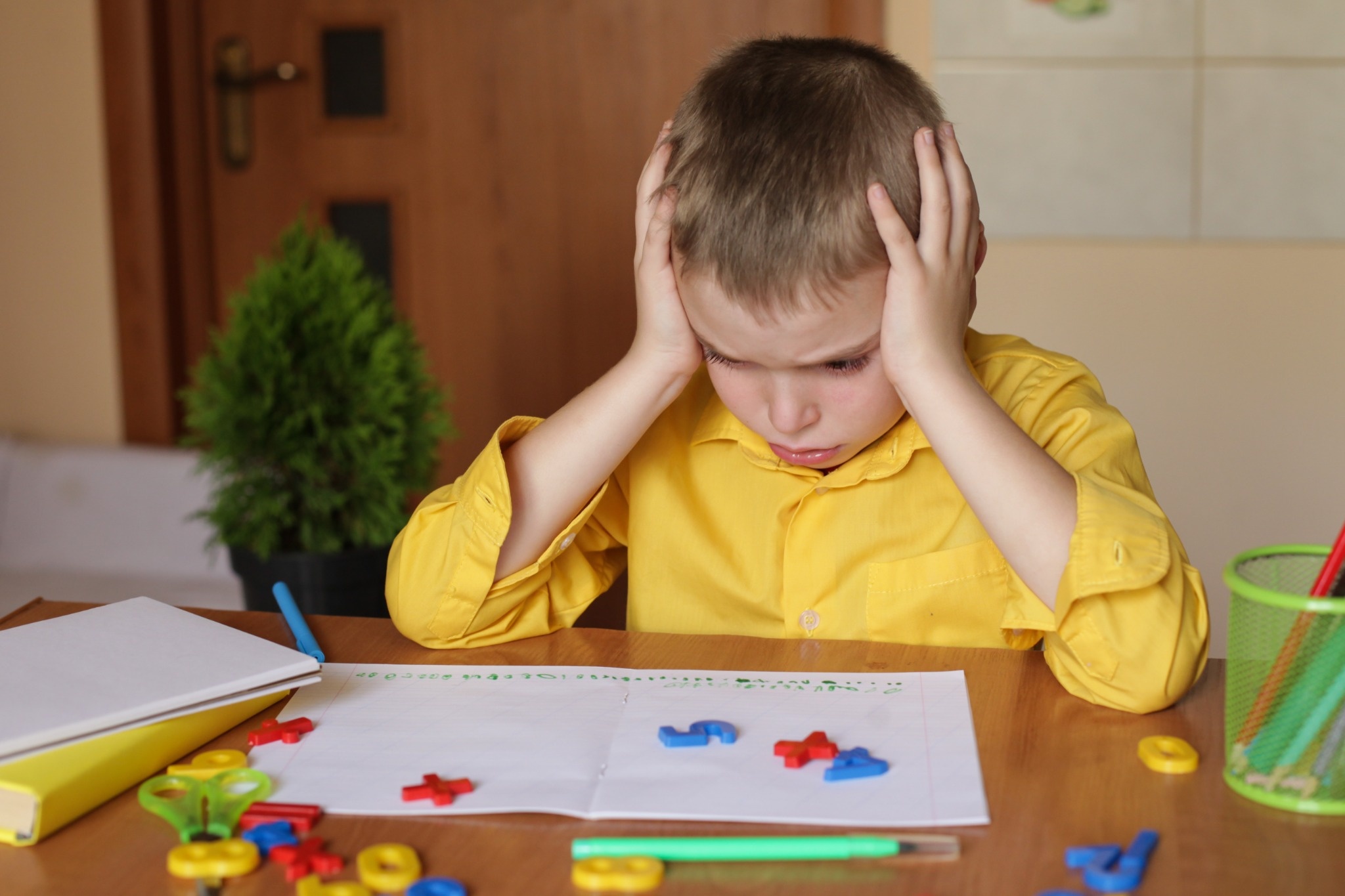Autism spectrum disorder (ASD) is a developmental condition that affects how individuals communicate, interact socially, and process the world around them. As a parent, you want nothing more than to support and understand your child, and noticing behaviors that seem different can feel confusing or even overwhelming. Recognizing the early signs of autism is an important step—and one that shows how deeply you care about your child’s future. If you’ve noticed things like delayed speech, limited eye contact, or repetitive actions, you may be wondering what they mean and what to do next. We are here to help you navigate when it’s time to seek a comprehensive early autism signs assessment. Remember you are not alone in this journey, and taking the first step is an act of love and courage.
An evidence-based assessment is more than just a tool; it’s a way to better understand your child’s unique strengths and challenges. An early autism diagnosis can feel daunting, but it opens the door to necessary resources, empowering you with the knowledge and support you need to help your child flourish. For families, this clarity can bring relief and direction, while for communities, early understanding paves the way for acceptance, inclusion, and a sense of belonging. If you’ve been wondering, “How do I know my kid has autism?” or have noticed potential autism red flags, seeking an autism evaluation for children is a powerful step toward unlocking your child’s potential. With early action, you are giving your child the best chance to grow and embrace a future filled with possibilities—and that is an incredible gift.

Recognizing Early Autism Red Flags
Recognizing autism red flags is often the first step in understanding developmental differences, and as a parent, it’s natural to feel a mix of concern and uncertainty during this time. These red flags are behaviors or milestones that, when delayed or absent, might suggest the need for closer attention. For example, your child may experience delayed speech development, find it difficult to make eye contact, or seem uninterested in social interactions, like playing with peers. Repetitive behaviors, such as hand-flapping or meticulously lining up toys, are also common signs. While these behaviors don’t definitively mean autism, they are signals that deserve your care and attention. Remember, noticing these patterns early isn’t just about identifying challenges—it’s about opening doors to the right support and opportunities that will help in your child’s growth.
It’s important to know that these signs can look different for every child, and they might emerge gradually, making this process feel even more uncertain. Some children may face more visible challenges in social settings, while others might show sensory sensitivities or strong preferences for routine. It can feel overwhelming to observe and interpret these behaviors across different environments—whether at home, in daycare, or with extended family—but every observation you make is valuable. Seeking an early autism signs assessment or an autism evaluation for children can help you better understand what’s happening and what your child needs to succeed. Even if these behaviors don’t lead to an early autism diagnosis, this process offers guidance, reassurance, and a path toward support that will make a meaningful difference for your child.

How Do I Know My Child Has Autism? Common Developmental Differences
Children grow and develop at their own pace, and as a parent, it’s normal to feel unsure when you notice something different. Autism can show up in unique ways, like being extra sensitive to sounds or lights, struggling with changes in routine, or not engaging in pretend play as much. For example, your child might avoid loud noises, get upset by small changes, or prefer to play alone by lining up toys instead of pretending with them. If you’re wondering, “How do I know my child has autism?” know that simply paying attention and asking this question shows how much you care. Recognizing these traits is an important first step toward finding the right support system for your child.
It’s natural to wonder if certain behaviors are just part of growing up or if they might need more attention. Things like tantrums or shyness can be normal, but ongoing challenges with communication, social interaction, or repetitive behaviors could be signs to look deeper. Trust yourself—you know your child best. Watching how they behave in different places, like at home, school, or with other kids, can give you helpful clues. Talking to a doctor or specialist can make things clearer and guide you toward the next steps, like getting an autism evaluation for children. This includes an early autism signs assessment, which helps you understand your child’s needs. If an early autism diagnosis is made, it can connect you with tools and support that make a real difference. Consider scheduling a comprehensive autism assessment to take the first step toward understanding your child’s development. You’re not alone in this process, and taking these steps shows the love and care you have for your child.

Why Early Autism Diagnosis Matters
An early autism diagnosis can make a world of difference for children and their families. It opens the door to important early intervention services like speech therapy, occupational therapy, and behavioral support. These services are most effective during the early years when a child’s brain is still growing and adapting. Identifying autism early can help address challenges in communication, social interactions, and learning. It gives children the best chance to build important skills while giving families the tools and resources they need to support their child with confidence and love.
Delaying a diagnosis can mean missing out on key opportunities to help a child during their most important developmental years. Without an early autism signs assessment, families may find it hard to understand their child’s behaviors, leading to unnecessary stress or missed milestones. Taking steps toward an assessment helps parents make informed decisions about their child’s care and opens up access to valuable support as soon as possible. By acting early, families can create a path for their child to improve communication, build social skills, and enjoy a better quality of life. Every step you take now shows your dedication to helping your child thrive. If you're feeling unsure about where to start or how to access the right resources our resource liaison services can guide you through the assessment process and connect you with trusted professionals.

The Comprehensive Autism Evaluation Process
A comprehensive autism evaluation is a careful and detailed process designed to understand your child’s development and determine if they meet the criteria for autism spectrum disorder. This evaluation includes several steps. Specialists observe how your child interacts with their surroundings and with others. They also gather developmental history through conversations with you, learning about important milestones like communication and motor skills. Standardized tools and tests are used to assess key areas like social interaction, sensory responses, and cognitive development. Conducting an early autism signs assessment helps identify your child’s unique needs so they can get the right support to thrive.
These evaluations are often done by a team of experts, including developmental pediatricians, psychologists, speech therapists, and occupational therapists. Each specialist brings their expertise to create a complete understanding of your child’s abilities and challenges. As a parent, you are an important part of this process. By sharing your observations, answering questions about your child’s development, and preparing information like medical records or notes on specific behaviors, you help ensure a thorough and accurate evaluation. This team approach ensures that your family receives clear, personalized guidance to support your child’s growth and well-being. If you’re wondering how to navigate funding options for these evaluations and related therapies, make sure to check our autism funding services.

When to Seek Help: Next Steps for Concerned Parents
Deciding when to seek an autism evaluation for children can feel overwhelming and emotional for parents, but there are signs that might mean it’s time to take the next step. If you notice ongoing differences in your child’s development—like difficulty communicating, limited social interaction, or repetitive behaviors—it’s a good idea to talk to a healthcare provider. Watching for autism red flags, such as unusual responses to sensory experiences, difficulty with changes in routine, or challenges connecting with peers, can help you understand when to seek professional guidance. Recognizing these signs early gives you the chance to learn more about your child’s development and access the right kind of support tailored to their needs.
There are many resources available to help families through this process. Specialized clinics can offer you kind, evidence-based care for your children. Community groups and online resources can also provide valuable information and emotional support. With the right help, you can feel more confident and informed about the next steps. A thoughtful and supportive approach is at the center of every early autism signs assessment, making sure your family has the knowledge and tools you need to help your child flourish.





.svg)







.svg)






.svg)



.svg)



.png)




















